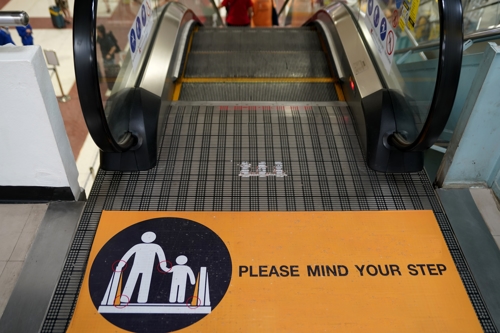
In K* v. New York City Transit Authority, the plaintiff, REK, brought an action against the NYCTA after experiencing disruptive noise and vibrations in her apartment, which she claimed stemmed from the installation and operation of escalators in the nearby 72nd Street subway station. K* alleged these intrusions amounted to a legal trespass and sought injunctive relief compelling the Transit Authority to abate the disturbances. This dispute triggered a chain of third-party claims involving the building’s ownership and the escalator’s manufacturer, further complicating the litigation.
At the heart of K*’s argument was the claim that the escalator installation had resulted in an unauthorized and harmful intrusion into her private living space. However, the court found that she failed to satisfy the legal requirements for summary judgment on her trespass and injunction claims. While she did provide evidence of increased noise and vibrations coinciding with the escalator’s installation, she could not establish an intentional entry onto her property—a core element of a trespass claim. Moreover, she did not prove that the Transit Authority acted with “substantial certainty” that its conduct would result in such intrusions, a standard derived from prior case law on nuisance and trespass.
Compounding this, expert testimony from the parties conflicted on whether the escalator operation violated city noise regulations, leaving unresolved questions of negligence that could, under specific circumstances, support a trespass claim. Given these ambiguities, the court denied K*'s request to sever third-party complaints, reasoning that a unified resolution served judicial economy since those claims directly concerned responsibility for the alleged disturbances.
Separately, the trial court had issued a conditional dismissal of K*'s complaint, citing her failure to comply with a prior discovery order. The appellate court reversed this sua sponte dismissal, noting that such drastic measures should be used sparingly and only under extraordinary circumstances. K*’s noncompliance was not shown to be willful or in bad faith, and no party had moved to compel discovery or to dismiss her claims. Additionally, K* had already stated her intent to abandon any claims for damages relating to personal injury, and the Transit Authority did not oppose this narrowing of her case.
Consequently, the appellate court modified the lower court’s order to allow K* to proceed solely with her trespass and injunctive relief claims, specifically as they relate to compelling the cessation of the alleged intrusions. All other claims were discontinued at her discretion. The associated third-party complaints, which had been voluntarily withdrawn following the initial dismissal of K*’s complaint, were restored as a result of the reinstatement.
When your building hums, your rights may roar ....
# # #
DECISION
